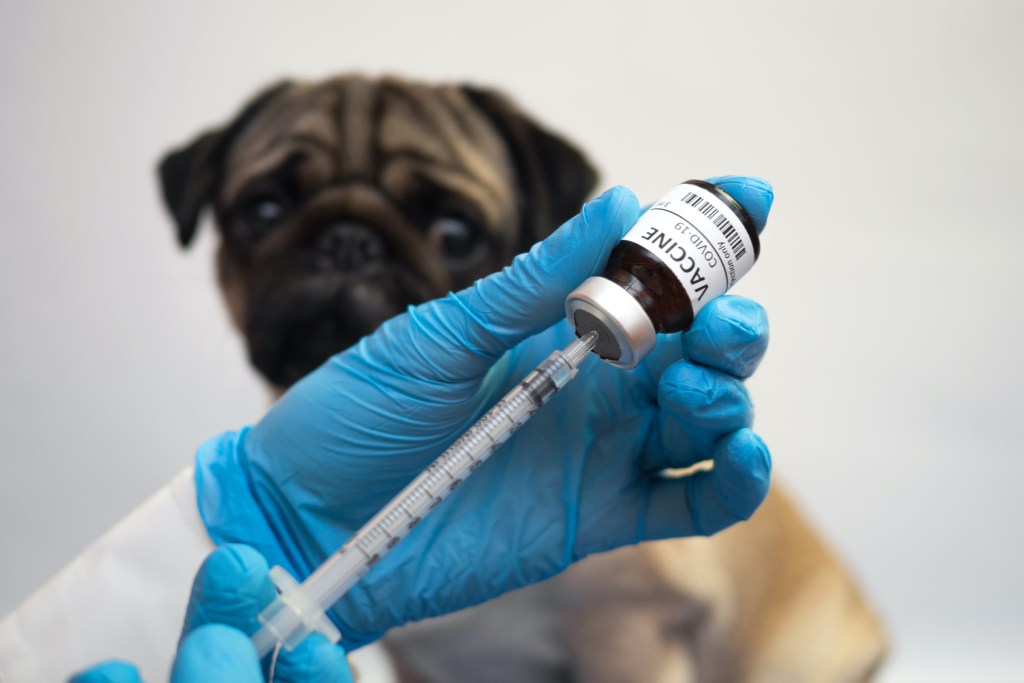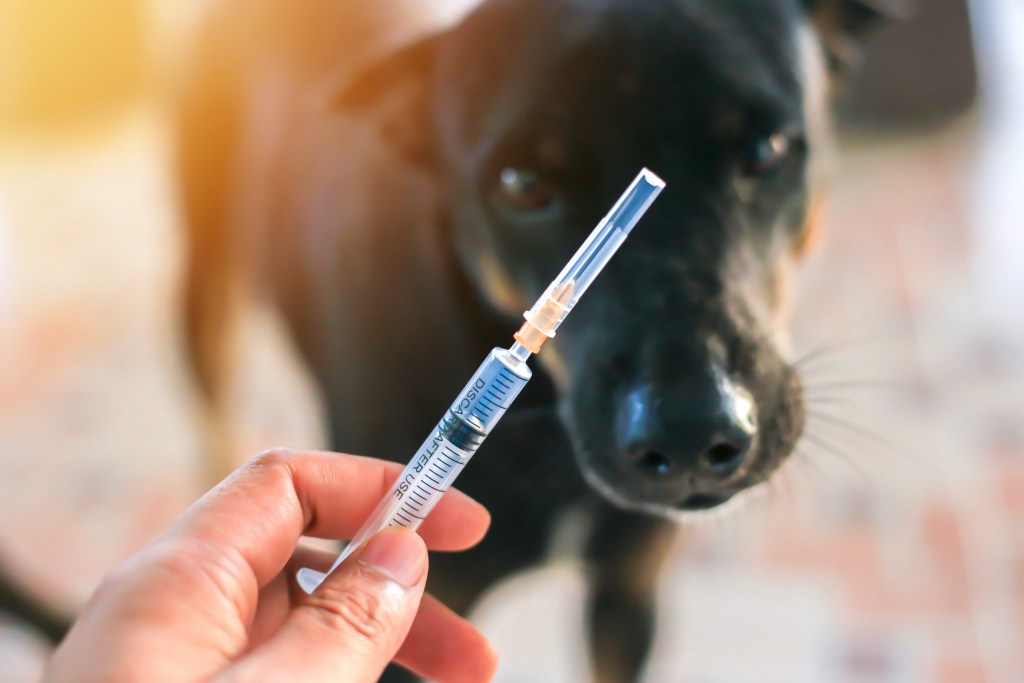There’s a lot you can make at home for your dog, DIY dog treats, homemade toys, etc. But what about vaccinations? It’s true! Bordetella vaccine administration can be performed right from your own living room, and it’s not as scary as you’d think.
Still, it’s important to know and take all of the necessary precautions before jumping in. This ensures your dog’s safety in more ways than one, and it saves you the trouble of having to run to the vet if anything seems off. Still, side effects and mistakes are rare when all instructions are followed. Many pet parents are more capable of administering the vaccine than they realize, though whether they decide to or not is up to them.
Here’s how to give the Bordetella vaccine at home.
Where to buy Bordetella vaccines
Though it’s not recommended by veterinarians, you can administer the Bordetella vaccine to your dog right at home. Some vets even sell the vaccines from their own offices, though sometimes only to registered breeders (via PetMD). In order to purchase these vaccine doses, you’ll need to fill out and submit a release form that relinquishes all of the vet’s responsibility for the safety of the shot.
If your vet’s office doesn’t sell supplies to pet parents who want to vaccinate their dogs at home, you can purchase Kenne-Jec 2 Kennel Cough Dog Vaccine at a number of trusted stores and sites. You will likely need a prescription to complete the purchase, so you’ll still need to talk to your vet. This particular formula can be given to dogs as young as three weeks old, so you can start vaccinating your puppy right away. Want to know the best news? There are no needles involved!
Please read through Pet MD’s sample Vaccine Release Form to understand the importance of properly handling and administering your dog’s vaccine. From handling the syringes to the way you dispose of the used medical items, you’ll need to make smart choices for your dog, yourself, and the environment.
Is it safe to DIY my dog’s Bordetella vaccine?
Administering your dog’s own Bordetella vaccine can be safe and sanitary, but you’ll need to follow strict instructions. Make sure to follow any storage or handling suggestions listed on the packaging to give your pup the most effective vaccine. Double-check the packaging and expiration dates on the labels of your products too.
If you have any lingering concerns about the safety or efficacy of Bordetella vaccines—intranasal or injectable—talk to your vet before proceeding. If you like, they will happily show you how to administer the Bordetella vaccine to your dog for the first time, so then you’ll be a pro when their booster doses are due.

How do I administer my dog’s Bordetella vaccine?
- To give your dog the intranasal Kenne-Jec 2 vaccine for kennel cough, you’ll want to unwrap and remove the stoppers from both vials in the package.
- Use the included dropper to drop 1 mL of liquid diluent into the vaccine vial, then shake well to mix.
- Next, draw the vaccine mixture back into the dropper and gently drop it into your buddy’s nostril.
It may not be the most comfortable experience for your pup, but it’s easier than using a needle to inject the medication.
Veterinarian Donald Bramlage, DVM, uploaded a helpful video about the process of mixing and administering intranasal vaccines—take a look! Sometimes a visual example can make the steps even clearer. As you can see, he also has an assistant to help hold the dog still as he gently drips the medication into the pup’s nose, so it may be helpful to have someone help you when it’s time to administer the vaccine. Don’t forget to give your buddy a treat when you’re all done!
One of the most important steps in vaccinating your dog is keeping an eye on them afterward. In the vast majority of cases, there are zero problems from intranasal vaccinations, but anaphylaxis is a remote possibility. Veterinarian T.J. Dunn, Jr., DVM, has administered about 200,000 vaccines in his career and has only seen an anaphylactic reaction three times. Each time, quick medical intervention was able to save the dogs’ lives. Think of this as just one more reason to consult your veterinary team before giving your dog the Bordetella vaccine.
Now that you know what’s involved, how do you feel about vaccinating your dog at home? It will surely save you money versus going to the vet, but only you can decide whether the benefits outweigh the potential risks.
Editors' Recommendations
- 5 surefire ways to keep your dog off your bed and get a good night’s sleep
- Taking your dog’s collar off at night: Safe move or safety risk?
- How to tell if your older dog’s health decline means the end is near
- My dog is shaking and acting weird – should I worry?
- Xylitol is dangerous for dogs: 10 surprising products that contain it as a hidden ingredient





